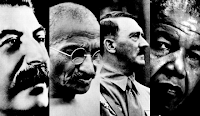 The simplest things in life pass with so little notice that they have to jump up and bite you in order to be understood. Evidently, so is also the case with social media and the political particularities and mechanisms of about any country. As once the tower of Babel was wrought by confusion of language, social media risk becoming a mere edifice of a failed attempt to combine politics and technology.
The simplest things in life pass with so little notice that they have to jump up and bite you in order to be understood. Evidently, so is also the case with social media and the political particularities and mechanisms of about any country. As once the tower of Babel was wrought by confusion of language, social media risk becoming a mere edifice of a failed attempt to combine politics and technology. Addressing a Fokus magazine conference on "How technology changes politics" last week, I was struck by a feeling that I spoke a different language than most other participants. This was peculiar to me, as I am well-versed in Swedish political and media culture, and knew many of the other participants. At first, I could not get a grip on why such was the case, before realizing that the combination of politics and social media was at the core of the problem. I simply did not relate to the use of social media in politics in the same way as most other participants did.
 Why was it so? The simplest explanation is that dealing with social media on an international level - mainly with Central and Eastern Europe - the way political topics and issues are addressed there has little similarity with how things are dealt with in a Swedish context. The social media culture is totally different, as well as the mechanics of political and social media interaction. Despite knowing the language and context of Swedish politics, I had no way of understanding the mechanisms of how social media are used in a Swedish context. Giving a global outlook, I got the impression that portraying realities of politics-social media interaction internationally - in striking accordance with the political landscape in countries concerned - was received almost as cynical by parts of the audience. But hey, this is normal. If the security services in e.g. Uzbekistan boil political dissidents alive, then it is destined to leave an imprint on politics and the social media landscape in that country. This is not acting the devil's advocate. It is addressing the issues at hand without either malice or idealism.
Why was it so? The simplest explanation is that dealing with social media on an international level - mainly with Central and Eastern Europe - the way political topics and issues are addressed there has little similarity with how things are dealt with in a Swedish context. The social media culture is totally different, as well as the mechanics of political and social media interaction. Despite knowing the language and context of Swedish politics, I had no way of understanding the mechanisms of how social media are used in a Swedish context. Giving a global outlook, I got the impression that portraying realities of politics-social media interaction internationally - in striking accordance with the political landscape in countries concerned - was received almost as cynical by parts of the audience. But hey, this is normal. If the security services in e.g. Uzbekistan boil political dissidents alive, then it is destined to leave an imprint on politics and the social media landscape in that country. This is not acting the devil's advocate. It is addressing the issues at hand without either malice or idealism.A paradox is perhaps that I felt I had a lot more in common in terms of social media with the conference keynote speaker, Alan Rosenblatt of the Center for American Progress, than I had with my fellow countrymen, of whom I had known several for decades. A relevant question is, of course, if lessons learnt from a US context are applicable to that of another country or culture. This is usually not a problem, but the mere dynamics of social media and consequent development causes difficulties when regarding both politics and social media, because they evolve interactively and must therefore by nature be different to each particular context. Or else they would be to no use. Besides the cultural caveat, disabling copycat application of social media in political campaigning, there is also the issue of repetition. Techniques are largely applicable only to limited scopes and spans of political action, as social media as a means of communication is dynamic and sui generis.
 For me, web activism and the use of social media is still a matter of simple political logics. You have a political content and then you use social media as an instrument for interaction and exchange of ideas with an open mind and willingness to argue your case. What struck me as odd was however that despite knowing the particular "language" or context, the social media culture was so different from the one I am used to relating to, that I had difficulties understanding how Swedish political activists could have any use of them in campaigning or communication. Still, that is hardly for me to say, as my main point is a lack of understanding, of course, provided I do not do that too well, which I lay no claim to.
For me, web activism and the use of social media is still a matter of simple political logics. You have a political content and then you use social media as an instrument for interaction and exchange of ideas with an open mind and willingness to argue your case. What struck me as odd was however that despite knowing the particular "language" or context, the social media culture was so different from the one I am used to relating to, that I had difficulties understanding how Swedish political activists could have any use of them in campaigning or communication. Still, that is hardly for me to say, as my main point is a lack of understanding, of course, provided I do not do that too well, which I lay no claim to.One great exception to the lack of lingua franca was the enfant terrible of the show, Pirate Party leader Rickard Falkvinge. Using social media in political communication seemed as natural to him as it is to me. So, are Swedish politicians losing out on something important here? Possibly, but not necessarily. It all depends on what kind of political and party culture that exists. If you have an open mind and are ready for equally open-ended communication, then social media might become an invaluable instrument of mutual communication between people and candidates during political campaigning. If so is not the case, it may well be both money down the drain, and serve as a political liability, as not knowing how to use social media may well expose greater flaws of your policy.
All in all, it was a very worthwhile experience to attend the Fokus seminar, as it raised my awareness to matters that should really be self-evident, but I have previously not been wholly aware of. I also got an oppportunity for self-reflection and a portion of humility, which will be very useful when reflected against a more international social media context. Last but not least, it was great meeting so many bright and initiated people, who did not think of matters the way I did, thus providing an element of intellectual enrichment. However, judging from my impressions of the seminar, the one advice I might venture to give Swedish politicians as for social media is to either go full in if you have a massive message to convey, or else keep it on a low or moderate scale in proportion to what party culture, modus operandi, and campaign programme may allow. Or else you may be in for a lot of unwarranted trouble. After all, building a Babylonic tower needs finding a language in common even if you speak in different tongues. That is perhaps the greatest challenge for political establishment to overcome.














